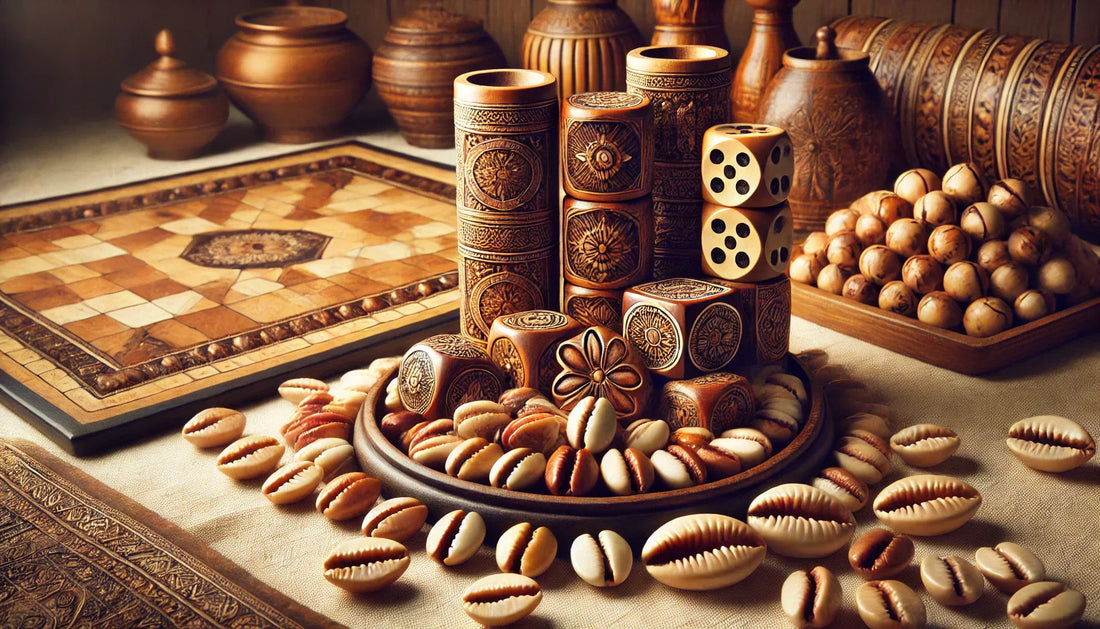
Traditional Indian Board Games: A Journey Through Culture, Heritage, and Values
Share
Check Out All The Handcrafted Indian Traditional Board Games Here
India’s vibrant cultural heritage is woven with diverse traditions, philosophies, and art forms. Among these, traditional board games hold a unique place. These games are more than just pastimes; they are reflections of the country’s history, values, and way of life. In this blog, we’ll explore the cultural significance of traditional Indian board games and how they embody the essence of India’s rich heritage.
The Origins of Indian Board Games
India has a deep-rooted history of creating games that have stood the test of time. From the epic tales of the Mahabharata, which mentions the dice game of Chaupar (or Chausar), to archaeological evidence from the Indus Valley Civilization, board games have always been integral to Indian life.
These games were often designed with intricate symbolism and taught lessons in strategy, morality, and social interaction. For example, Pachisi, sometimes called the “national game of India,” represents the cosmic order, with the game board often resembling a cross or a lotus.
Cultural Values Embedded in Games
Traditional Indian board games were more than mere entertainment. They carried significant cultural and moral undertones, emphasizing virtues such as patience, strategic thinking, teamwork, and sportsmanship. Here’s how some popular games reflect these values:
1. Chowka Bara (Pachisi)
This game, often compared to Ludo, symbolizes the path of life. Played with cowrie shells or dice, Chowka Bara develops strategic planning and adaptability. Its gameplay mirrors life’s unpredictability, teaching players to remain composed in both victory and defeat.
2. Aadu Huli (Tiger and Goat)
Aadu Huli pits tigers against goats, requiring strategic planning and cooperation. While the tiger represents power, the goats symbolize collective effort. The game underscores the triumph of teamwork over individual might, reflecting India’s community-centric ethos.
3. Navakankari (Nine Men’s Morris)
This game, known for its elegant simplicity, teaches critical thinking and foresight. It also mirrors ancient warfare strategies, showing how Indian culture valued intellect as much as physical strength.
4. Alaguli Mane (Mancala)
A counting game played on wooden boards with small pits, Alaguli Mane promotes arithmetic skills and resource management. It demonstrates India’s affinity for blending education with recreation.
Reflection of Heritage
Indian board games are often adorned with intricate designs inspired by local art forms, including Madhubani, Pattachitra, and Kalamkari. These embellishments transform the games into cultural artifacts, preserving traditional art and aesthetics.
The Dashavatara-inspired Pagade, for instance, is a testament to how these games celebrate mythology. Each token and dice roll narrates a story, connecting players to India’s epics and folklore.
A Medium for Bonding
Traditionally, board games were played during festivals and gatherings, serving as a medium for social bonding. Families and communities came together to engage in friendly competition, reinforcing relationships. The games also bridged generational gaps, with grandparents teaching their grandchildren the nuances of each game.
Educational and Developmental Benefits
The educational value of these games is immense. They foster:
- Cognitive skills: Strategic games like Navakankari and Chowka Bara develop problem-solving and critical thinking.
- Emotional intelligence: Games such as Aadu Huli teach players to manage their emotions under pressure.
- Cultural appreciation: By connecting players to traditional stories, these games instill pride in Indian heritage.
At Roll the Dice, we strive to keep these benefits alive with premium-quality traditional game sets, blending cultural nostalgia with modern design.
Global Influence
India’s traditional games have influenced popular global games. For instance:
- Chess originated as Chaturanga in India, spreading to Persia and Europe.
- Snakes and Ladders, originally called Moksha Patam, was a moral teaching tool that illustrated the paths of virtue and vice.
These games, now played worldwide, serve as a reminder of India’s contribution to global culture.
Preservation Efforts
With the advent of digital entertainment, the popularity of traditional board games has waned. However, initiatives like workshops, exhibitions, and online platforms aim to revive interest in these cultural treasures. For example:
- Workshops and Community Events: Organizations like Roll the Dice conduct workshops to teach the nuances of games like Pagade and Aadu Huli.
- Digital Adaptations: Platforms such as Tollugatti make traditional games accessible to a global audience, preserving their relevance in the digital age.
Why Traditional Games Matter Today
In a world increasingly dominated by technology, traditional Indian board games provide a welcome respite. They encourage face-to-face interaction, fostering deeper connections. Additionally, these games serve as a bridge to India’s past, offering insights into the wisdom and creativity of ancient Indian society.
Investing in these games is an investment in preserving a rich cultural legacy. By introducing them to younger generations, we ensure that the values and stories they carry remain alive.
Traditional Indian board games are more than just sources of entertainment; they are windows into India’s soul. Each roll of the dice, every move of a token, tells a story of resilience, wisdom, and unity. Whether through their connection to mythology, their educational value, or their role in strengthening relationships, these games continue to resonate with timeless relevance.
Let’s celebrate and preserve these cultural gems. Visit Roll the Dice to explore beautifully crafted traditional games and embark on a journey through India’s heritage. Together, we can keep the spirit of these games alive for generations to come.
References:
- "The History of Chess: From Chaturanga to the Modern Game" - Chess.com
- "Snakes and Ladders: Its Origin and Cultural Significance in India" - Indian Heritage Journal
- Roll the Dice - Traditional Indian Board Games
